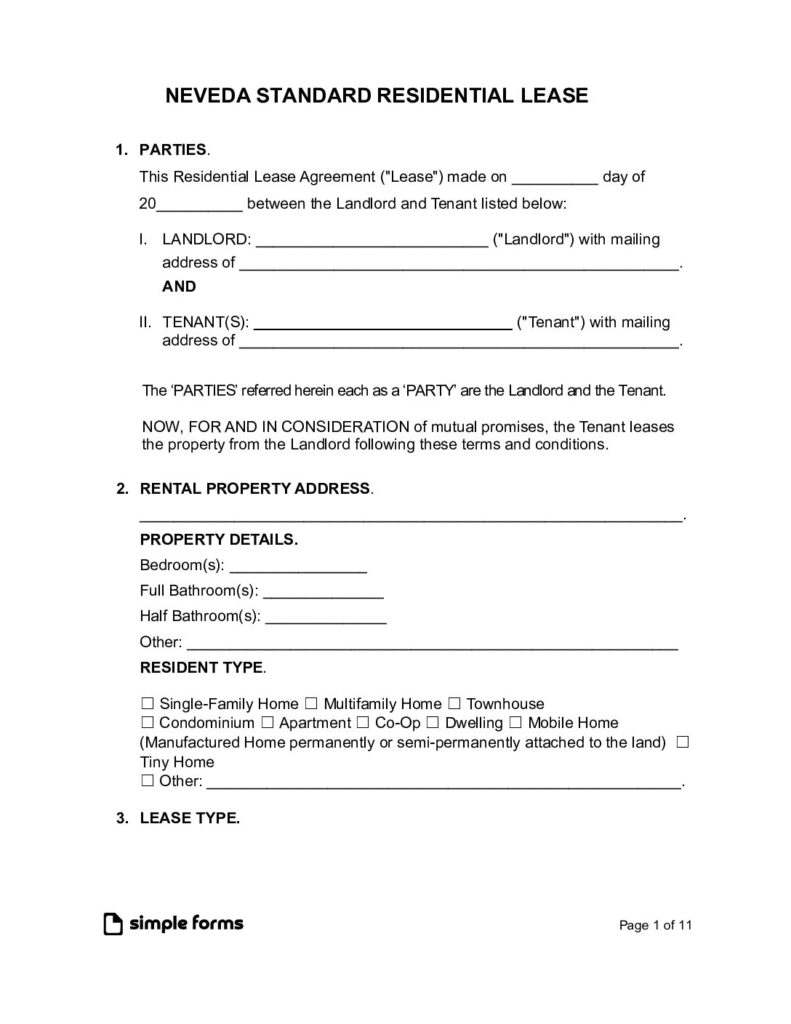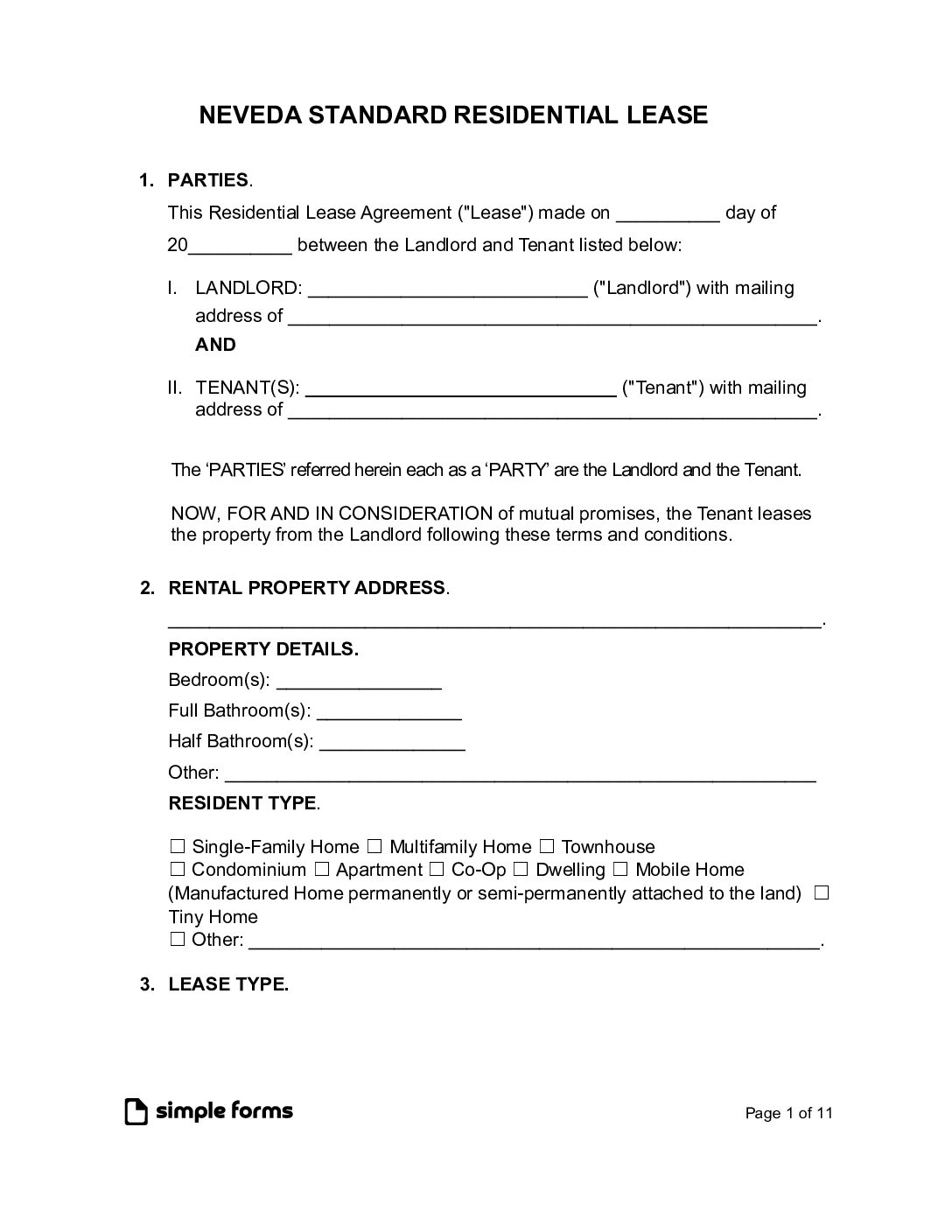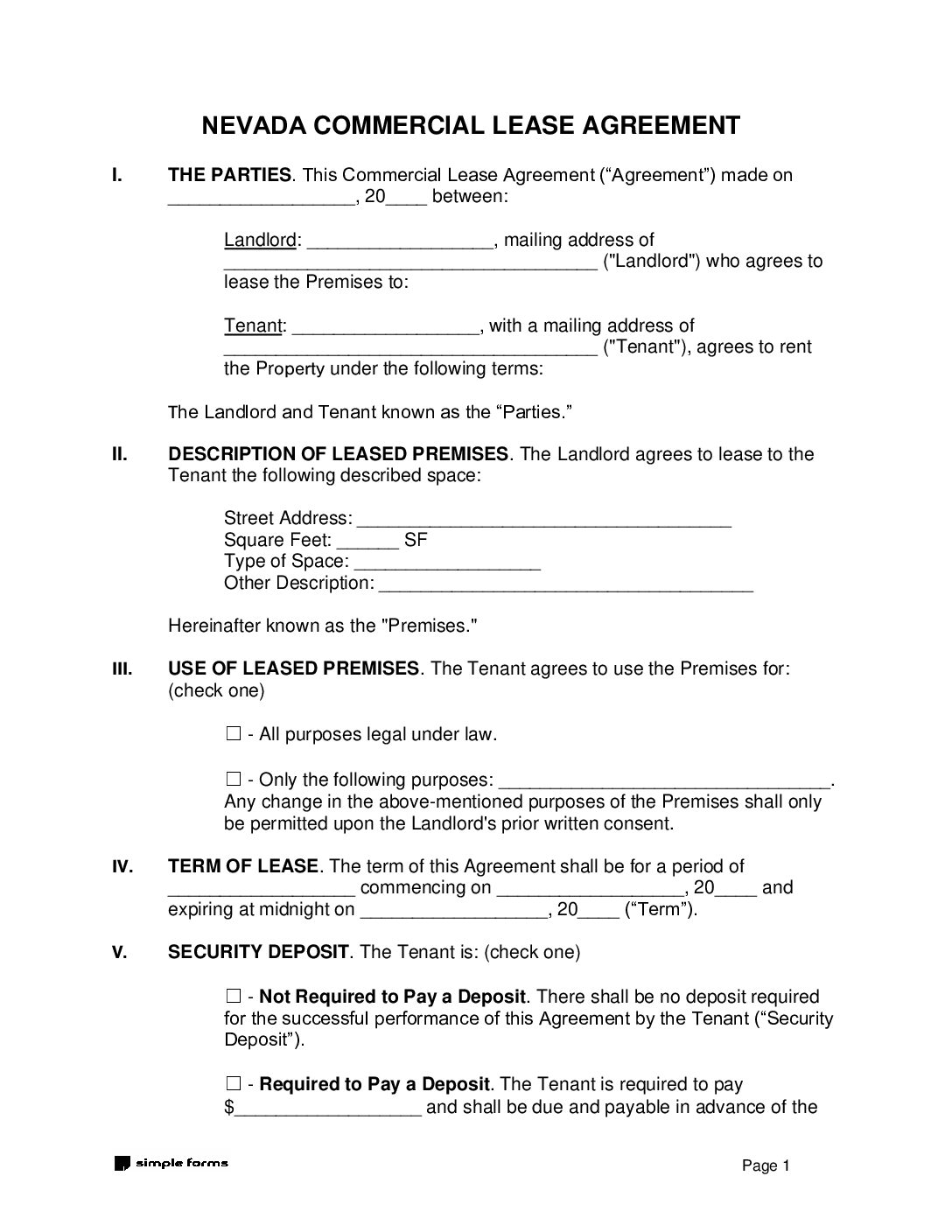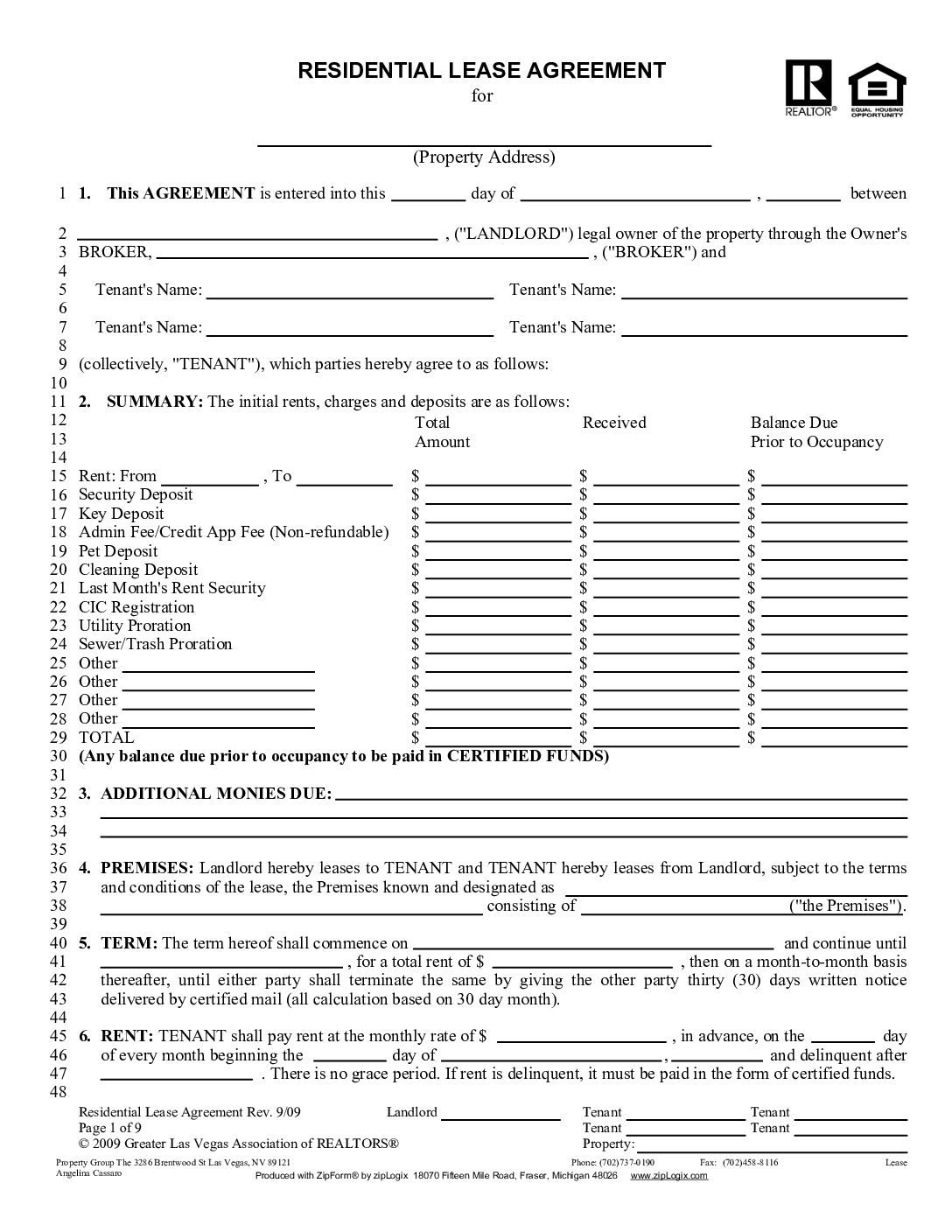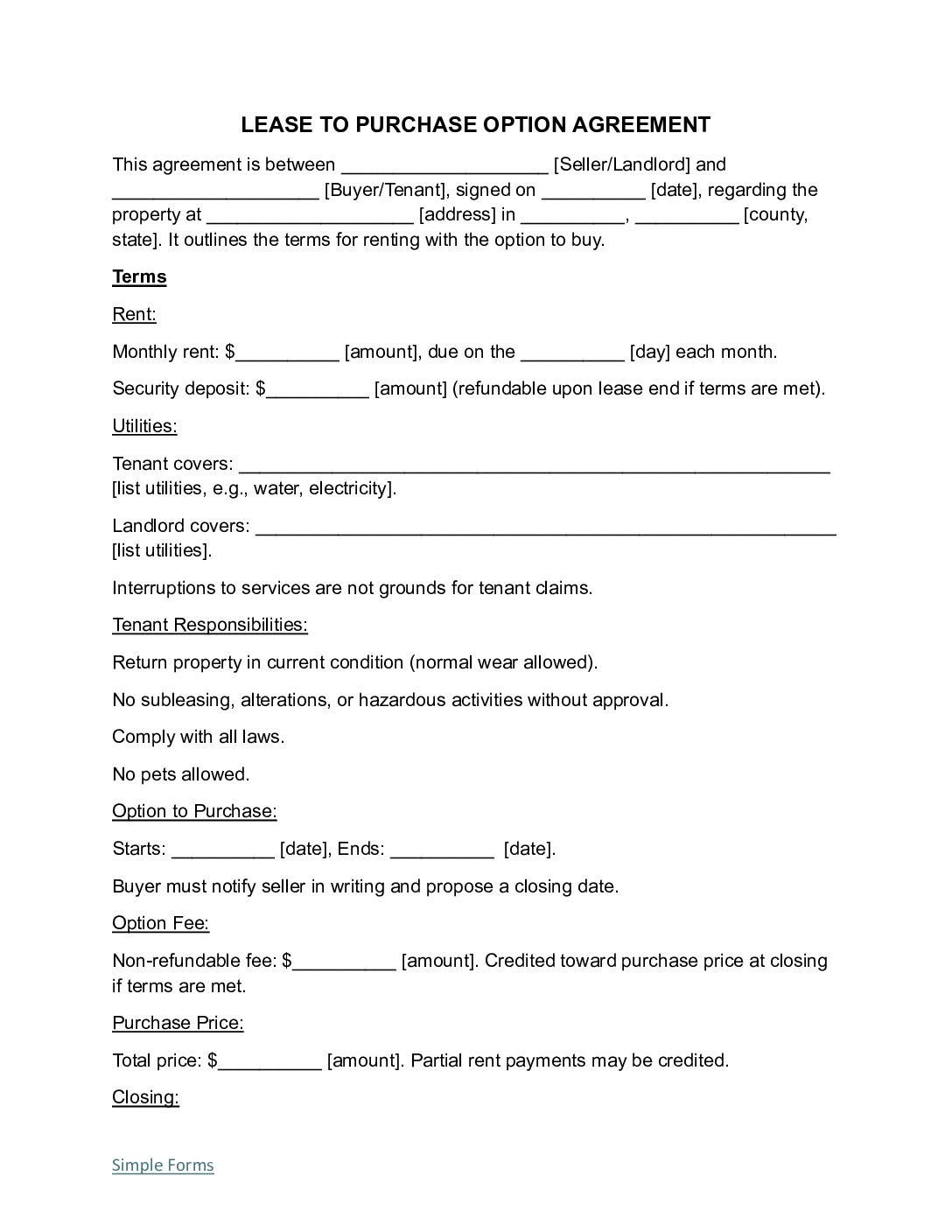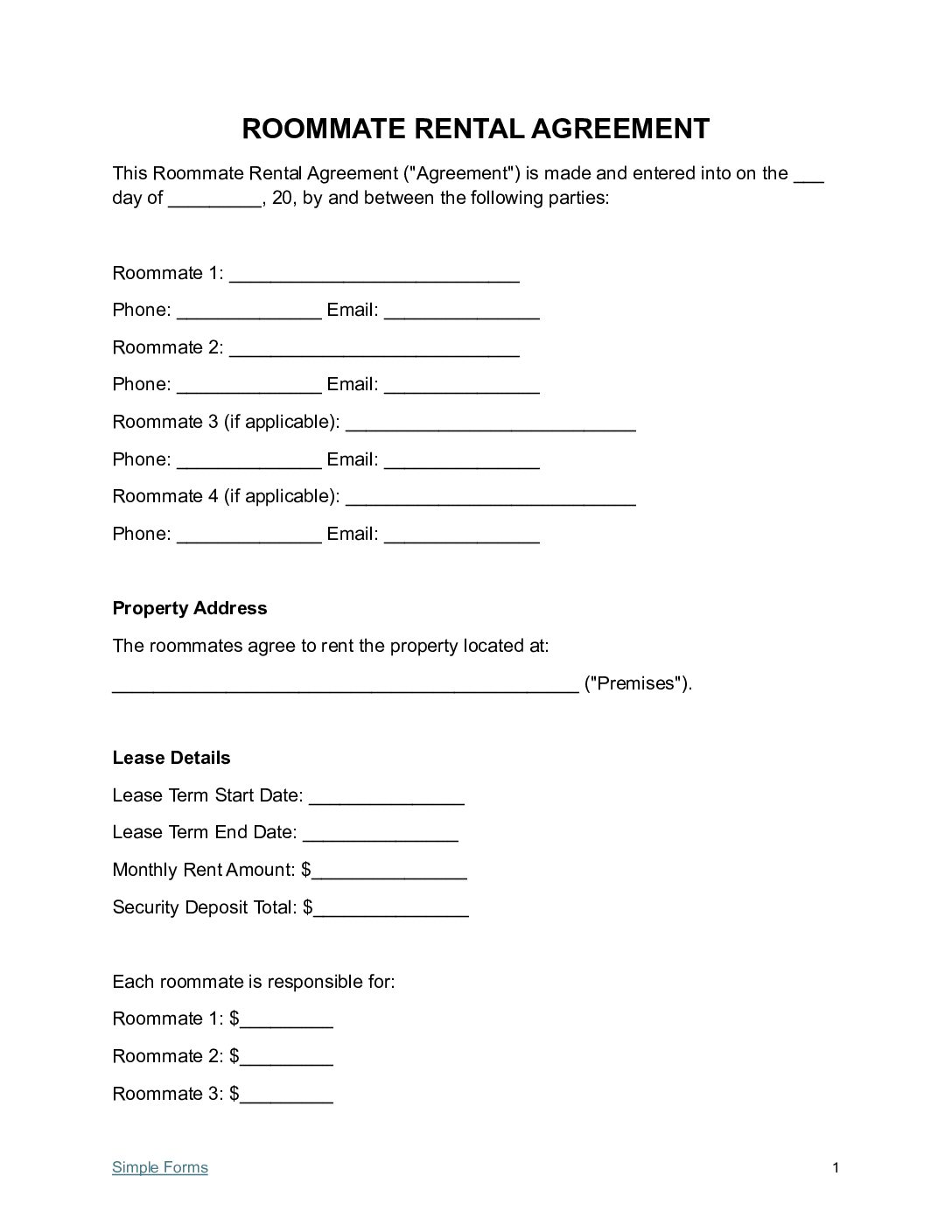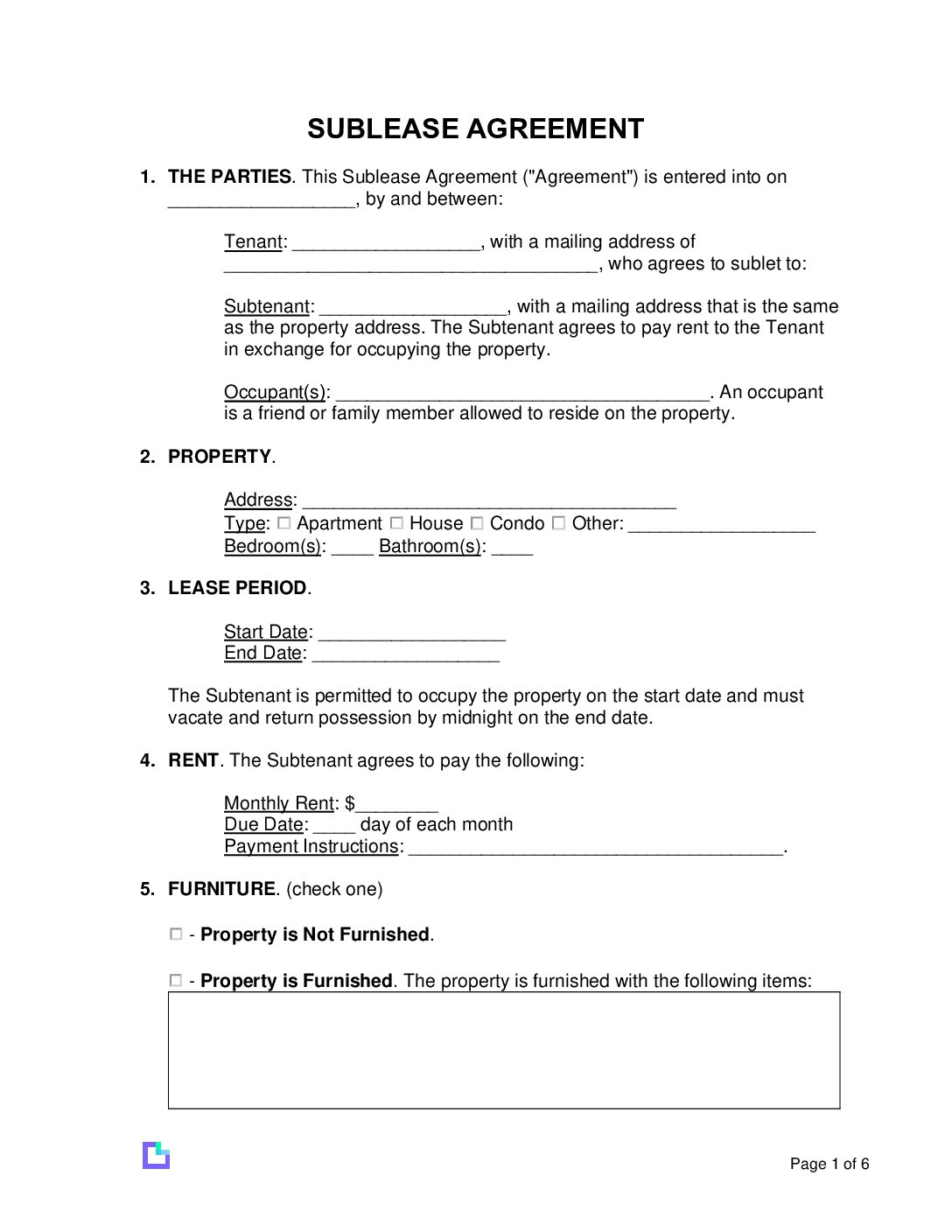Download a Nevada Lease Agreement By Type (7 Templates)
| Nevada Residential Lease Agreement Template – Standard 1-year lease term. Download: PDF | Word (.docx) |
|
| Nevada Commercial Lease Agreement – A contract for business use. Download: PDF | Word (.docx) |
|
| Nevada Association of Realtors Lease Agreement Download: PDF | Word (.docx) |
|
| Nevada Month-to-Month Lease Agreement – Tenancy at will with renewals every 30 days. Download: PDF | Word (.docx) |
|
| Nevada Rent-to-Own Purchase Option Lease Agreement – A lease that includes an option for the tenant to purchase the property. Download: PDF | Word (.docx) |
|
| Nevada Room (Roommate) Lease Agreement – for people who rent out a room in a unit.
|
|
| Nevada Sublease Agreement Template – Used to Sublet unit with landlords prior approval. Download: PDF | Word (.docx) |
What the Nevada rental lease agreement form covers?
This Nevada Lease Agreement includes Nevada landlord-tenant laws. Landlords must maintain properties and keep up with local housing codes, return security deposits, and give advance notice to tenants before entry.
This agreement form includes the following:
- Nevada Residential Landlord-Tenant Act
- Security Deposit Law
- Lease Termination
- Landlord’s Access to the Property
- Rent Due Date plus Late Fees
- Eviction Procedures
- Property Maintenance
- Tenant Rights
- Rent Control
- Discrimination Protections
- Habitability Standards
- Utilities and Services
- Required Disclosure Forms
Nevada Residential Landlord-Tenant Act
Summary: Landlords must comply with the health and safety codes to to make sure the rental property is safe and habitable for tenants. [1]
Security Deposit Law
Summary:
- 30 Days – Landlords must return the deposit to tenants within 30 days of the lease end date.[2]
- Itemized List – Deductions must be itemized by the landlord and shared with the tenant.
- Maximum – The maximum amount is equal to the total amount of three (3) months’ rent.
- Interest on Security Deposits – Landlords are not required to collect or pay interest on security deposits.
Lease Termination
Summary: Both landlords and tenants can terminate a lease under the following conditions:
- Landlord’s Ability to Terminate
- 7-day notice for nonpayment of rent.
- 5-day notice to correct lease violations.
- Tenant’s Ability to Terminate
- Tenants may terminate for reasons such as habitability issues after proper notice to the landlord.
- 30-day notice required for month-to-month leases.[3]
Landlord’s Access to Property
Due Dates / Late Fees
- Grace Period – Three-day grace period. If rent isn’t paid, a seven-day notice to quit can be issued.
- Maximum Late Fee – The landlord can charge up to 5% of the monthly rent.
- NSF Fee – $25 per bounced check.
- Withholding Rent – If the landlord doesn’t maintain the property, tenants can make repairs and deduct up to one (1) month’s rent.
Eviction Procedures
Property Maintenance
Summary: Landlords are required to maintain the property in a habitable condition and respond promptly to repair requests.[7]
Tenant Rights
Summary: Nevada tenants have legal rights, including:
- Right to Privacy – Tenants are entitled to privacy in their rental unit.
- Right to Habitable Housing – The property must meet health and safety standards.[8]
Rent Control
Summary: Nevada does not have rent control laws, allowing landlords to set rents according to the market.
Discrimination Protections
Summary: The Fair Housing Act (FHA) prevents landlords from discriminating against tenants based on race, color, national origin, religion, sex, disability, and/or familial status (having children under 18, including pregnancy).[9]
Habitability Standards
Summary: Rental properties must meet basic habitability standards, including:
- Functional plumbing, heating, and electrical systems.
- Safe and sanitary living conditions.[10]
Utilities and Services
Summary: Landlords cover basic utilities unless stated otherwise in the lease.[11]
Required Disclosure Forms (7)
Summary: The following are required by the landlord to disclose to tenants.
- Fees – Any non-refundable fees must be listed in the rental agreement.[12]
- Foreclosure (conditional) – The landlord must tell the tenant if the property is in foreclosure.[13]
- Lead-Based Paint Disclosure & EPA Pamphlet – If the property was built before 1978, the landlord must inform the tenant about lead paint and provide an EPA pamphlet.
- Move-in Checklist – A signed list of the property’s condition must be completed when the tenant moves in.[14]
- Nuisance/Violation Guide – The landlord must give the tenant instructions on how to report problems to the authorities.[15]
- USA Flag (Right to Raise) – The landlord must inform the tenant about their right to fly the American flag.[16]
- Security Deposit Receipt (conditional) – If asked, the landlord must provide a receipt for the security deposit.[17]
